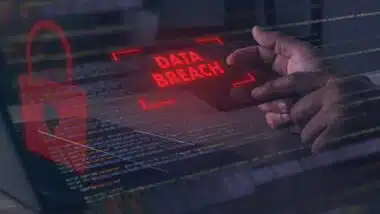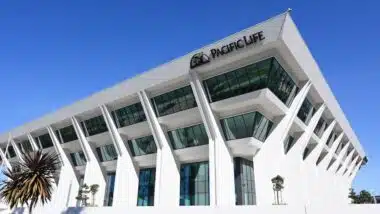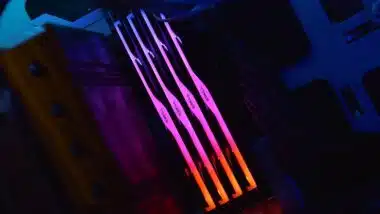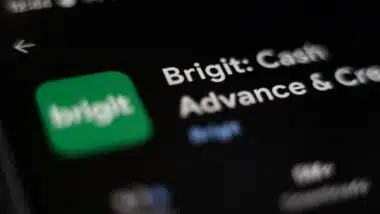
New York Gov. Andrew Cuomo signed the New York Child Victims Act into law in February 2019, intending to allow more victims of childhood sexual abuse to come forward and pursue justice.
Since the act came into effect, hundreds of survivors of child sex abuse have been able to file litigation against their abusers and the organizations that let the abuse occur.
What is the New York Child Victims Act?
The New York Child Victims Act (CVA) greatly extends the deadline in the civil statute of limitations that currently restricts childhood sexual abuse survivors from being able to hold their abusers—and those who helped cover for them—accountable for their actions and inactions.
“After a 13-year ordeal and after decades of personal pain for so many, I hope you can find a slight sense of peace and a slight sense of vindication that you did not endure this pain without reason,” Cuomo said at the bill signing.
“You endured this pain so that others will not now feel that same pain. Your suffering will stop others from suffering.”
What Was the Old Statute of Limitations?
Statutes of limitation give a certain amount of time for a lawsuit to be filed after a crime takes place. It often distinguishes between civil and criminal acts with two different time limits. Criminal charges, which may result in a perpetrator being sent to jail, typically have a shorter statute of limitations. Civil claims, wherein a perpetrator is required to compensate the victim, are typically given more time.
For years, the statute of limitations for child molestation in New York had been one of the most restrictive in the country. Victims had only until age 23 to pursue litigation or seek criminal charges against their abuser(s). This made it extremely difficult for victims to pursue justice since the trauma of abuse often delays victims from coming forward for years, or even decades.
How Long Does the CVA Give Victims to Come Forward?
The New York Times reported that under the New York Child Victims Act, survivors will have until age 55 to file civil suits, and until age 28 to seek criminal charges against their abusers.
The CVA also gives victims a year to file a civil lawsuit against an institution—such as a school or church—that helped cover up the crime.
For those who have timed out of the current statute of limitations, and even those for whom the new time period is not long enough, the new law allows for a one-year period in which all victims can seek a civil action, regardless of when the abuse occurred.
What Does the Catholic Church Think About the CVA?
The Catholic Church has been at the center of several ongoing scandals regarding the sexual abuse of children, sparking investigations across the country.
In response to the passing of the New York Child Victims Act, the state’s Catholic bishops released a joint statement saying that they “pray that the passage of the Child Victims Act brings some measure of healing to all survivors.”
Not all diocese within the Catholic Church are supportive of the law. The Rockville Centre Catholic diocese, located on Long Island, sued in November 2019 to bring an end to the Child Victims Act, claiming that the law was unconstitutional under state law.
According to the diocese, New York’s constitution allows for time-barred claims “only in exceptional circumstances where claimants were previously prevented in some specific manner from asserting timely claims,” according to court papers.
But legal experts indicate that the statute of limitations is not constitutionally required, and that the diocese’s lawsuit may have been inspired more by an attempt to silence victims than to uphold the state constitution.
The attempt to have the CVA largely dismissed comes after the Rockville Centre diocese’s independent compensation program has already paid out more than $50 million to hundreds of survivors.
The rise in litigation filed under the Child Victims Act—many of which have been filed against the Catholic Church—led to the Roman Catholic Diocese of Rochester filing for bankruptcy in September 2019. The Buffalo Diocese followed suit in February of this year.
What Sparked the Recent Push for Improved Sex Abuse Laws?
 Childhood sex abuse has become more frequently talked about in recent years, particularly abuse that occurred within the Catholic Church.
Childhood sex abuse has become more frequently talked about in recent years, particularly abuse that occurred within the Catholic Church.
A Pennsylvania grand jury report, released in 2018, thoroughly examined hundreds of allegations of childhood sexual abuse committed by priests within six of eight Pennsylvania dioceses. (The other two dioceses had been included in a previous investigation.) The investigation lasted from 2016 to 2018, and the grand jury found credible allegations against more than 300 priests in the state.
According to the state attorney general, the clergy were collectively accused of sexually abusing more than 1,000 children, though the report noted that many more may have been afraid to come forward, or their records were lost.
Additionally, the investigation found that church leaders purposely attempted to avoid bad publicity and liability by covering up the allegations for years.
The Pennsylvania grand jury report sparked similar investigations in a number of other states. Several dioceses have cooperated with these investigations, publishing lists of accused predator priests. But others —like the Diocese of Rockville Center in New York — are choosing not to release this information. According to the website bishop-accountability.org, a 2003 Suffolk County grand jury report found that the Diocese of Rockville Center was “incapable of properly handling issues relating to the sexual abuse of children by priests.”
Can I File a Childhood Sex Abuse Lawsuit?
After the New York Child Victims Act went into effect, a growing number of child sexual abuse survivors began turning to litigation against their abusers, as well as the organizations that allowed the abuse to take place or even actively covered it up.
Indeed, under the CVA, a slew of individuals and organizations—including the Roman Catholic Church, the Boy Scouts, and Jeffrey Epstein—have faced litigation filed by survivors of child sex abuse.
If you are a victim of childhood sexual abuse in New York, even if the abuse happened years ago, you may be able to file a lawsuit and pursue compensation under the New York Child Victims Act. Filing a lawsuit cannot take away the pain and suffering caused by abuse and trauma, but it can at least help to provide monetary compensation and hold those responsible for your pain accountable.
Top Class Actions has laid the groundwork for you by connecting you with experienced sexual abuse lawyers. An attorney can help you determine if you have a claim, navigate the complexities of litigation, and maximize your potential compensation.
Join a Free New York Catholic Church Abuse Lawsuit Investigation
If you or a loved one was sexually abused by a member of the Catholic Clergy in New York, we work with compassionate lawyers who are ready to help you seek the justice you deserve. Fill out the form on this page for more information.
This article is not legal advice. It is presented
for informational purposes only.
ATTORNEY ADVERTISING
Top Class Actions is a Proud Member of the American Bar Association
LEGAL INFORMATION IS NOT LEGAL ADVICE
Top Class Actions Legal Statement
©2008 – 2026 Top Class Actions® LLC
Various Trademarks held by their respective owners
This website is not intended for viewing or usage by European Union citizens.
Get Help – It’s Free
Join a Free New York Catholic Church Abuse Lawsuit Investigation
If you qualify, an attorney will contact you to discuss the details of your potential case at no charge to you.
PLEASE NOTE: If you want to participate in this investigation, it is imperative that you reply to the law firm if they call or email you. Failing to do so may result in you not getting signed up as a client or getting you dropped as a client.
E-mail any problems with this form to:
[email protected].
Oops! We could not locate your form.












